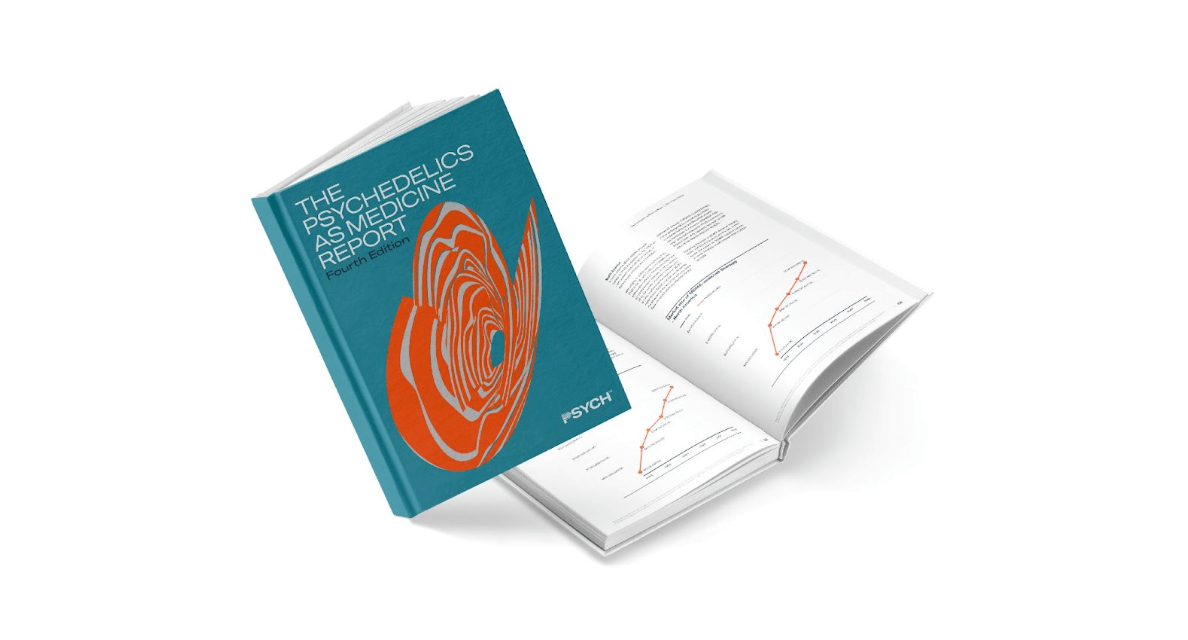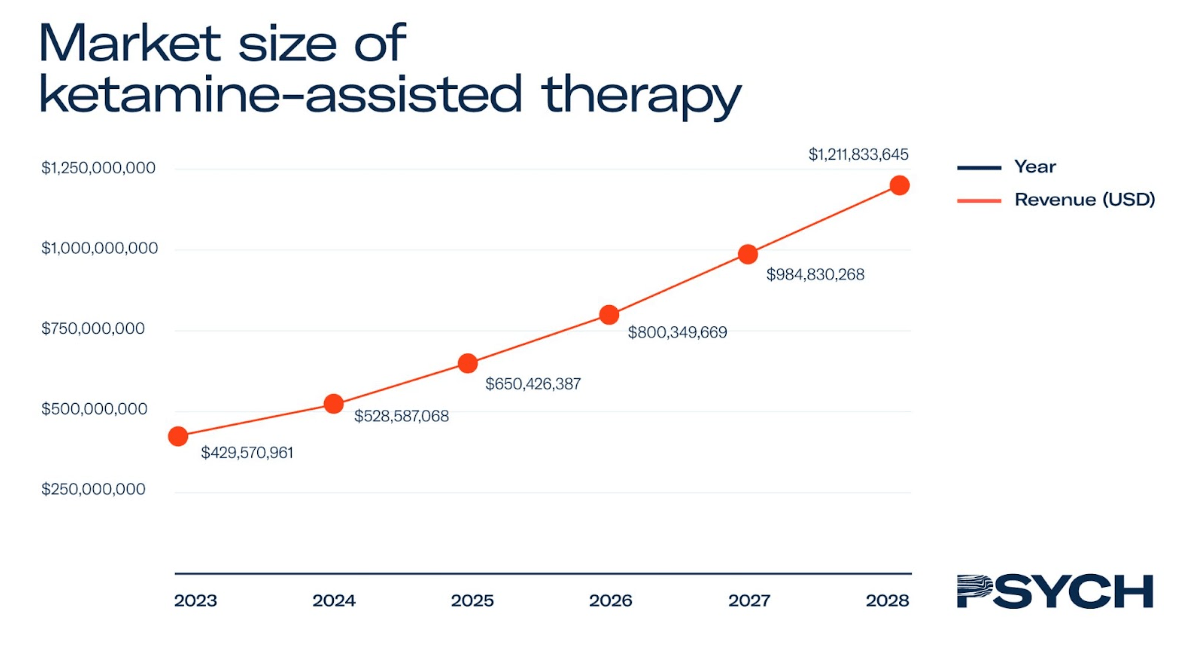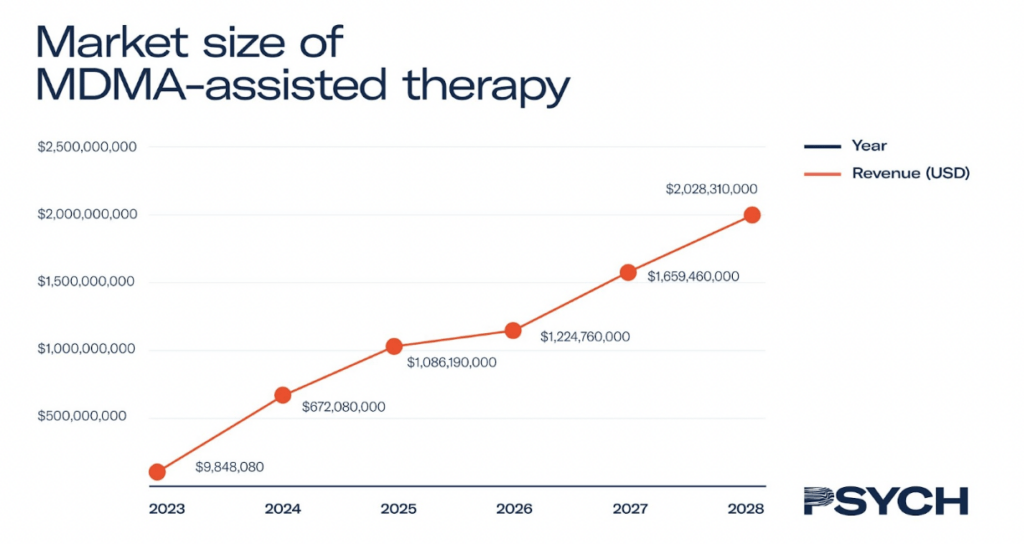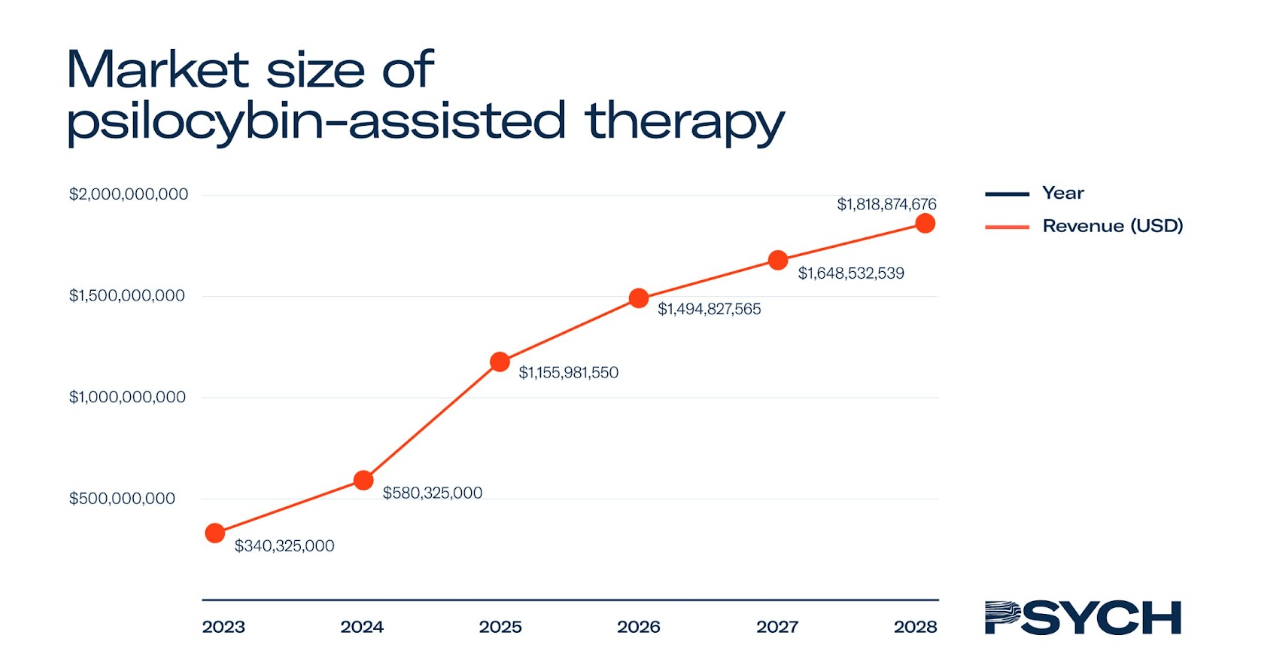Following several transformative milestones in psychedelics, coupled with a surge in biotech investment, 2024 is set to see a profound shift for the sector as investors turn their attention toward solutions in mental health.
With a remarkable 48% surge in biotech investment in the UK recorded between June and August 2023, according to data from the UK BioIndustry Association (BIA) and Clarivate, the financial landscape is ripe for innovative ventures.
This increase in investment followed the introduction of a new pension reform package which includes the Mansion House Compact. This allows pension providers to allocate 5% of default pension allocations to unlisted equity, which could equate to a massive £50bn in investment for UK companies.
Specific sectors highlighted for allocation include fintech, life sciences, biotech, and clean technology in order to create growth and support jobs across the UK.
This development presents a unique opportunity for the UK’s psychedelics industry to thrive.
Psychedelic developments
Parallel to this influx of biotech investment, the psychedelics industry has recently seen several watershed moments that are setting the stage for the sector’s acceleration.
In January 2024, UK-based Beckley Psytech secured $50M investment from atai Life Sciences to expedite the development of Beckley’s psychedelic assets through Phase 2 trials.
Multiple clinical readouts are expected from Beckley this year, including from its Phase 2a trial for Alcohol Use Disorder in mid-2024 and a Phase 2b readout of BPL-003, Beckley’s intranasal 5-MeO-DMT, for Treatment Resistant Depression in the second half of 2024.
Additionally, Canadian-based Filament Health announced that the FDA has accepted its Investigational New Drug application for PEX010, a botanical psilocybin drug candidate aimed at treating Substance Use Disorders (SUD).
February saw the FDA accept Lykos Therapeutics’ (formerly MAPS PBC) NDA for MDMA-assisted therapy for PTSD. The application has been granted Priority Review and the FDA is expected to announce its decision in August 2024. If approved, this will be a major development for psychedelic therapies following two decades of research by MAPS.
Elsewhere across the globe, 2024 has already seen the European Medicines Agency confirm it will be holding a meeting on psychedelics in April to help shape regulatory guidance, and the UK’s independent body, POST, confirm it intends to publish a major briefing on psychedelic drugs to treat mental health conditions later this year.
The decision to publish the briefing followed the country’s first parliamentary debate on access to psychedelics in 2023.
Furthermore, Australia’s MindBio Therapeutics announced results from its pioneering Phase 2a take-home microdosing trial of its proprietary titratable form of LSD, MB22001.
The study showcased rapid and statistically significant improvements in depressive symptoms, with a 60% reduction observed and 53% of patients achieving complete remission from depression. The compound was shown to be safe and well-tolerated, with no treatment-related severe or serious adverse events reported.
These results mark a significant milestone in understanding the potential for scaling up psychedelic therapies, and the company is working on building a proprietary treatment model that is scalable, safe and effective, and can be tailored to patients as a first-line treatment for depression.
Speaking to Psychedelic Health, Co-Founder & Chief Executive Director of MindBio Therapeutics, Justin Hanka, stated: “Microdosing is a scalable way to treat millions of people suffering from these conditions with psychedelic medicines and this data just confirms it is safe and effective and justifies the progress of this research in advanced stage clinical trials.”
Most recently, Cybin announced it had received FDA Breakthrough Therapy Designation for its novel psychedelic molecule CYB003. This will provide an expedited review pathway and increased access to FDA guidance on trial design, as well as the potential to reduce drug development timelines.
Cybin CEO, Doug Drysdale, stated: “The granting of Breakthrough Therapy Designation by the FDA underscores the potential of CYB003 to fill a gap in the treatment landscape for MDD and serves to expedite and de-risk our development programme going forward.
“This designation provides for a streamlined review process and enhanced engagement with the FDA. With the robust durability data from our Phase 2 study in hand, we are ready to move forward expeditiously. We are grateful for the opportunity to accelerate the development and regulatory review process that this designation affords, as we prepare to advance CYB003 toward a Phase 3 pivotal trial around mid-year.”
The company also announced its oversubscribed private placement of US$150m in March, led by Deep Track Capital and includes participation from RA Capital Management, Avidity Partners, Acorn Bioventures, Altium Capital, Logos Capital, Octagon Capital, Rosalind Advisors, Sphera Healthcare and other institutional investors. The net proceeds will be used for Phase 3 drug development activities for CYB003, working capital and general corporate purposes.
Adding to these developments, the FDA recently gave Breakthrough Therapy Designation to Australia-based MindMed’s MM120 (LSD) programme for the treatment of generalised anxiety disorder (GAD), another bolster for psychedelic therapies.
Robert Barrow, Chief Executive Officer and Director of MindMed, stated: “The FDA’s decision to designate MM120 as a breakthrough therapy for GAD and the durability data from our Phase 2b study provides further validation of the important potential role this treatment can play in addressing the huge unmet need among individuals living with GAD.”
Supporting investment
Israel-based Negev Capital, a biotech venture capital firm in the psychedelics-based medical R&D space, saw its successful first fund of $31 million invested across 27 companies including Beckley Psytech, MindBio and Filament Health.
Ken Belotsky, Partner at Negev Capital, commented: “We remain dedicated to supporting and investing in the future of psychedelic medicine and see 2024 as a watershed year for the sector.
“These recent achievements of just some of our portfolio companies underscore the immense potential of psychedelics-based compounds to revolutionise treatment of a wide range of mental health conditions, substance use disorders and other illnesses.’’
These major developments underscore a growing confidence in the potential of psychedelics to revolutionise healthcare and wellness, and investors are set to capitalise on their therapeutic potential bringing in a wave of investment.
The rest of 2024 is set to see regulatory approvals in the US and the advancement of clinical milestones which could see major shifts in valuations for companies in the sector.


 Opinion2 years ago
Opinion2 years ago
 Insight3 years ago
Insight3 years ago
 Medicinal2 years ago
Medicinal2 years ago
 Research2 years ago
Research2 years ago
 Markets & Industry1 year ago
Markets & Industry1 year ago
 Medicinal2 years ago
Medicinal2 years ago
 News3 years ago
News3 years ago
 Research2 years ago
Research2 years ago




















